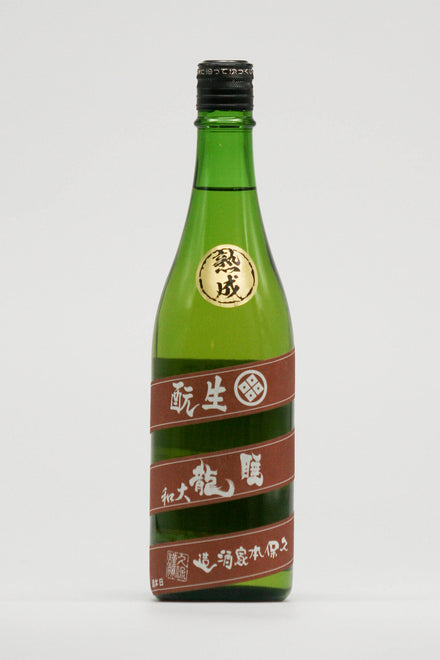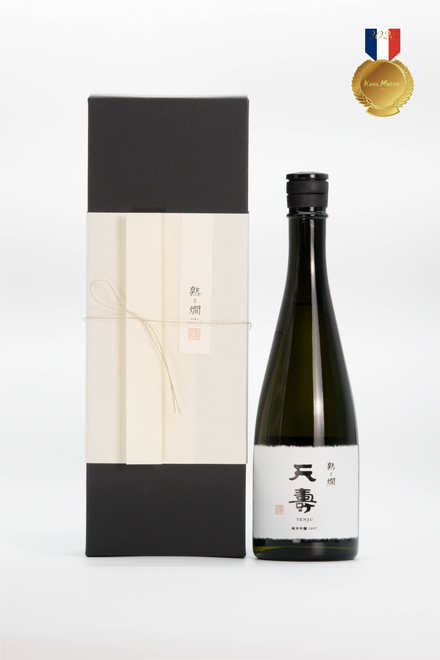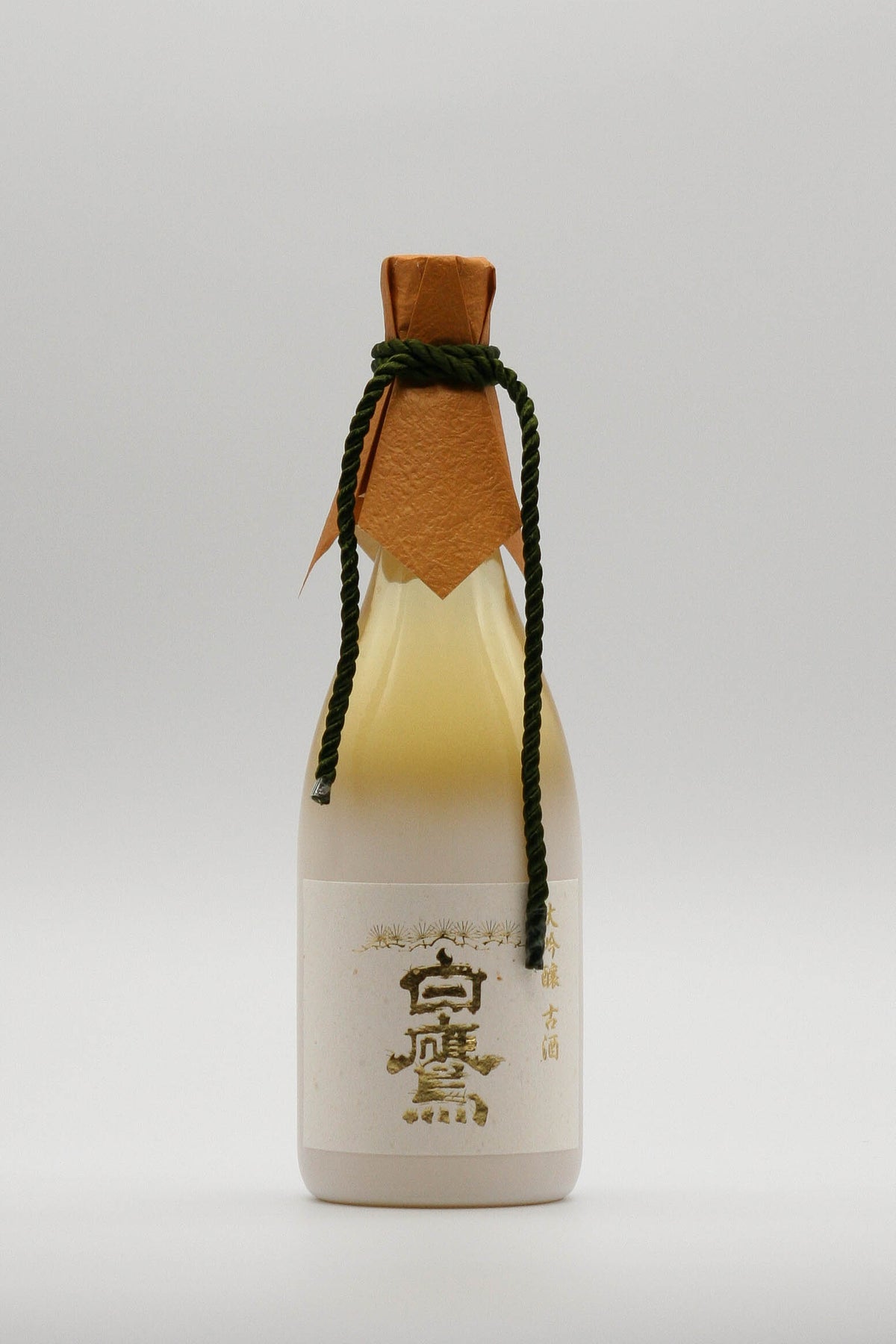
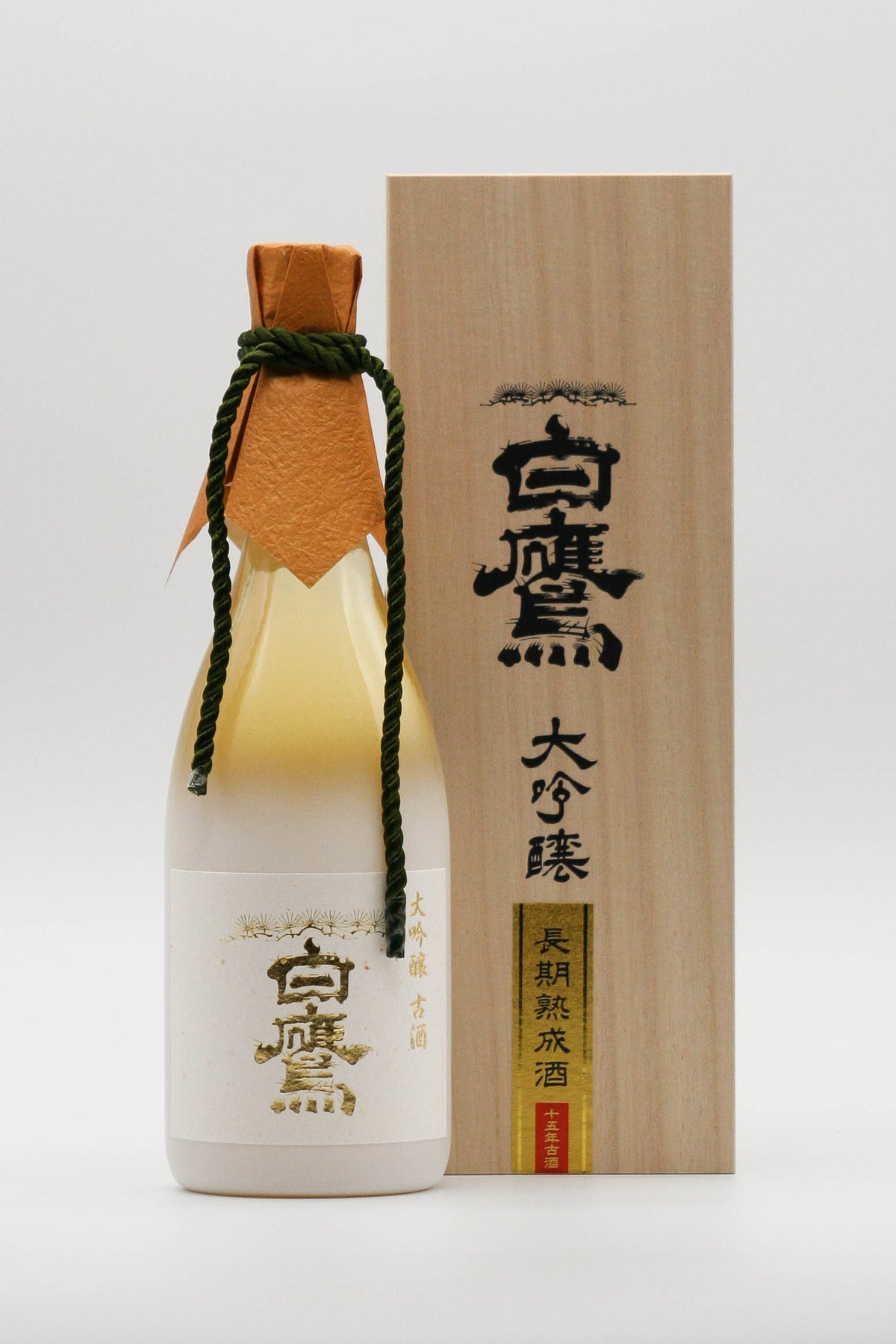
A sake that adheres to a long tradition while continuing to make sake with sincerity and timelessness.
Hakutaka Daiginjo Koshu
| Vintage | - |
| Years aged | 15 years |
- 10 years or more
- 5,000 - 9,999 yen
- All Products
- Light Yellow/Green
- Non-vintage
- Throughout the meal
- Brewer:Hakutaka
- Alcohol:16-16.9 degrees
- Volume:720ml
Couldn't load pickup availability
[ Drinking alcohol under the age of 20 is prohibited by law. ]
This Daiginjo sake is made from Yamada Nishiki rice grown in Special A Area, Yoshikawa-cho, Hyogo Prefecture, polished to 35% and aged for over 15 years.
It has a mushroom-like aroma. It has a gentle approach but a powerful taste. When you put food in your mouth, you can sense that the flavor will blossom.
Thanks to straightforward sake brewing methods, this is an all-purpose drink that is versatile and goes well with any food.
You can change the temperature to suit your meal and enjoy it in any way you like.
- about
-
Type Daiginjo Rice polishing ratio 35% Yeast type - Ingredients/raw materials Rice, rice malt, brewed alcohol Rice type Yamada Nishiki Origin of rice Special A Area: Yoshikawa Town, Hyogo Prefecture Toji(Brew Master) - Assemblage -
- Recommended occasions/temperature
-
- How to store
-
- Delivery dates and charges
-
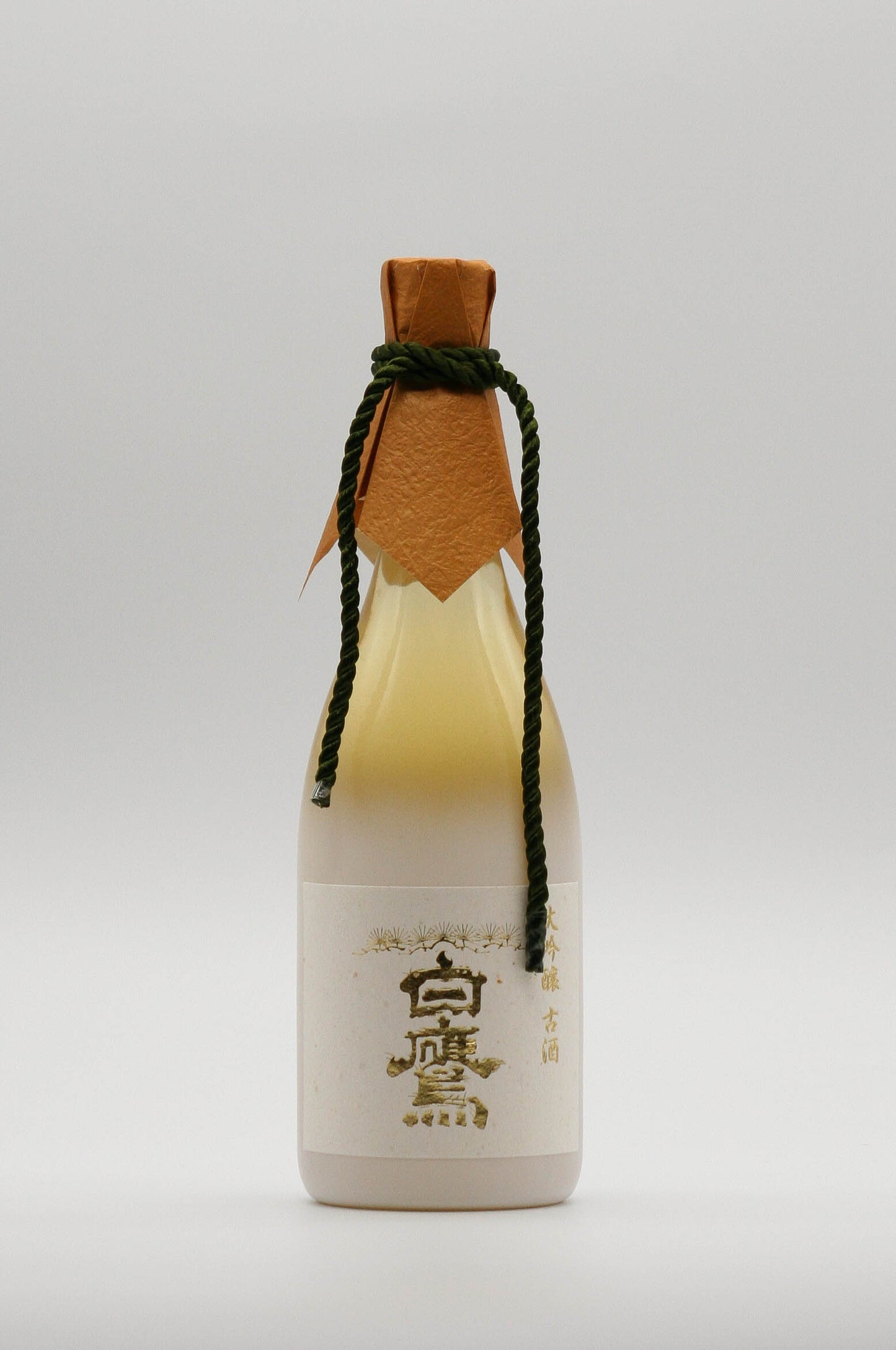
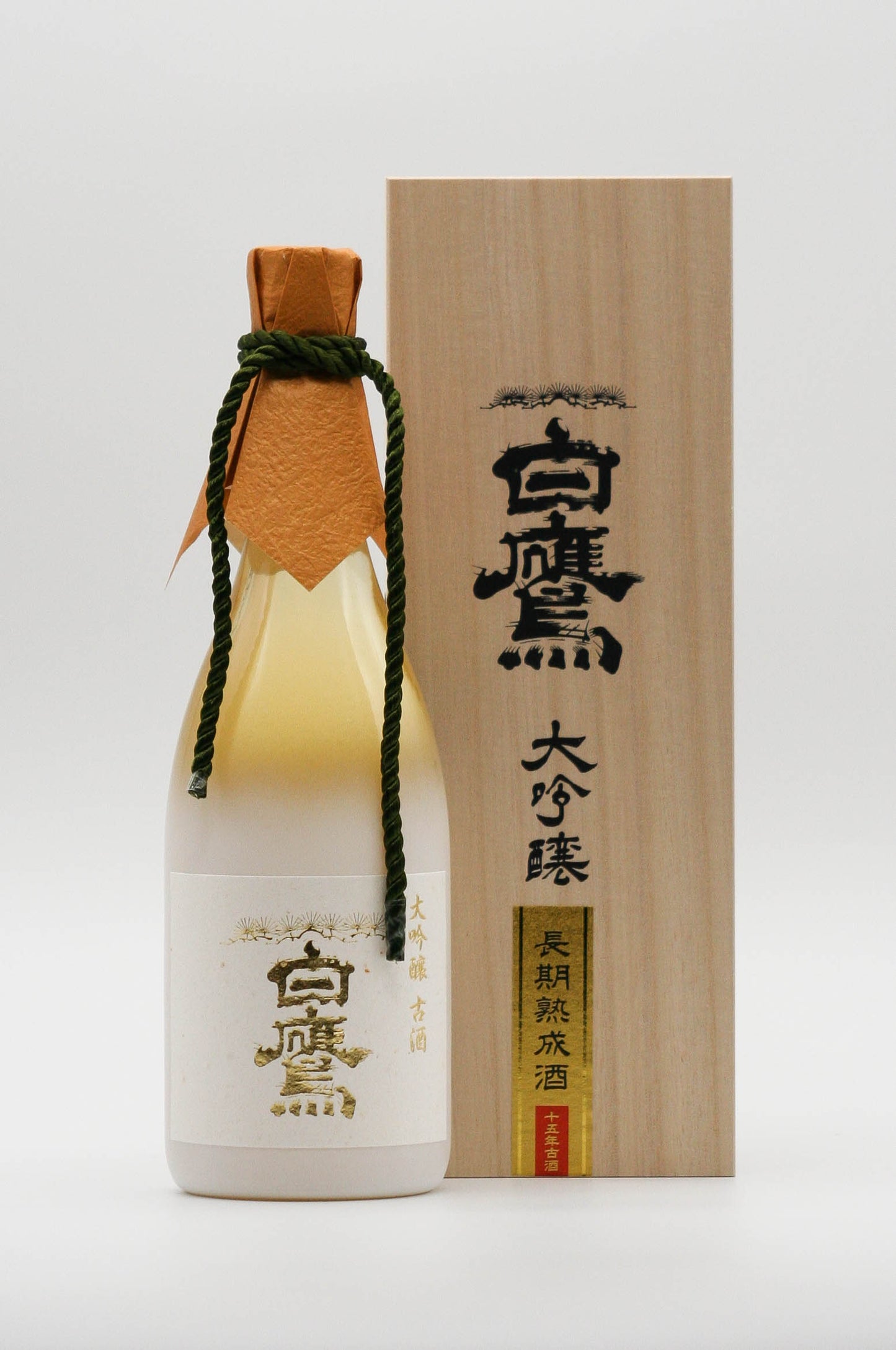
Tasting comments
-
Hidekazu Ishiwata
(Former National Tax Bureau Chief Appraiser)Sweet, aged aroma reminiscent of caramel and vanilla.
The elegant aroma lingers in your nose for a long time. Moderate sweetness and smooth mouthfeel. Astringency gives the taste a firm finish.
The best thing about it is the harmonious, mature feel.
-
Akiko Toda
(Director of ITTEKI, Japan Sake and Meat Research Institute)
After the roasted wheat aroma, there is a hint of dried apricot. The sharp bitterness and acidity give it a refreshing and crisp finish, but the texture is smooth. This sake goes well with the aroma of seaweed, sweet and spicy simmered dishes, and dried gourd rolls.
-
Yuji Yamauchi
(Yushima Tenjinshita Sushi Hatsu 4th generation / 1st JSA SAKE DIPLOMA competition winner)This aged liquor has a gentle richness reminiscent of Gouda cheese or popcorn, and a long stroke from deep, solid flavor to soft bitterness.
It is a sake that is lighter towards the end and shows a good balance with the lingering rice aftertaste, and goes well with oden and ganmo (stewed vegetables) made with Kansai dashi.
Edomae sushi stew and Osaka sushi are also good.
Brewer
- Choosing a selection results in a full page refresh.
- Opens in a new window.

